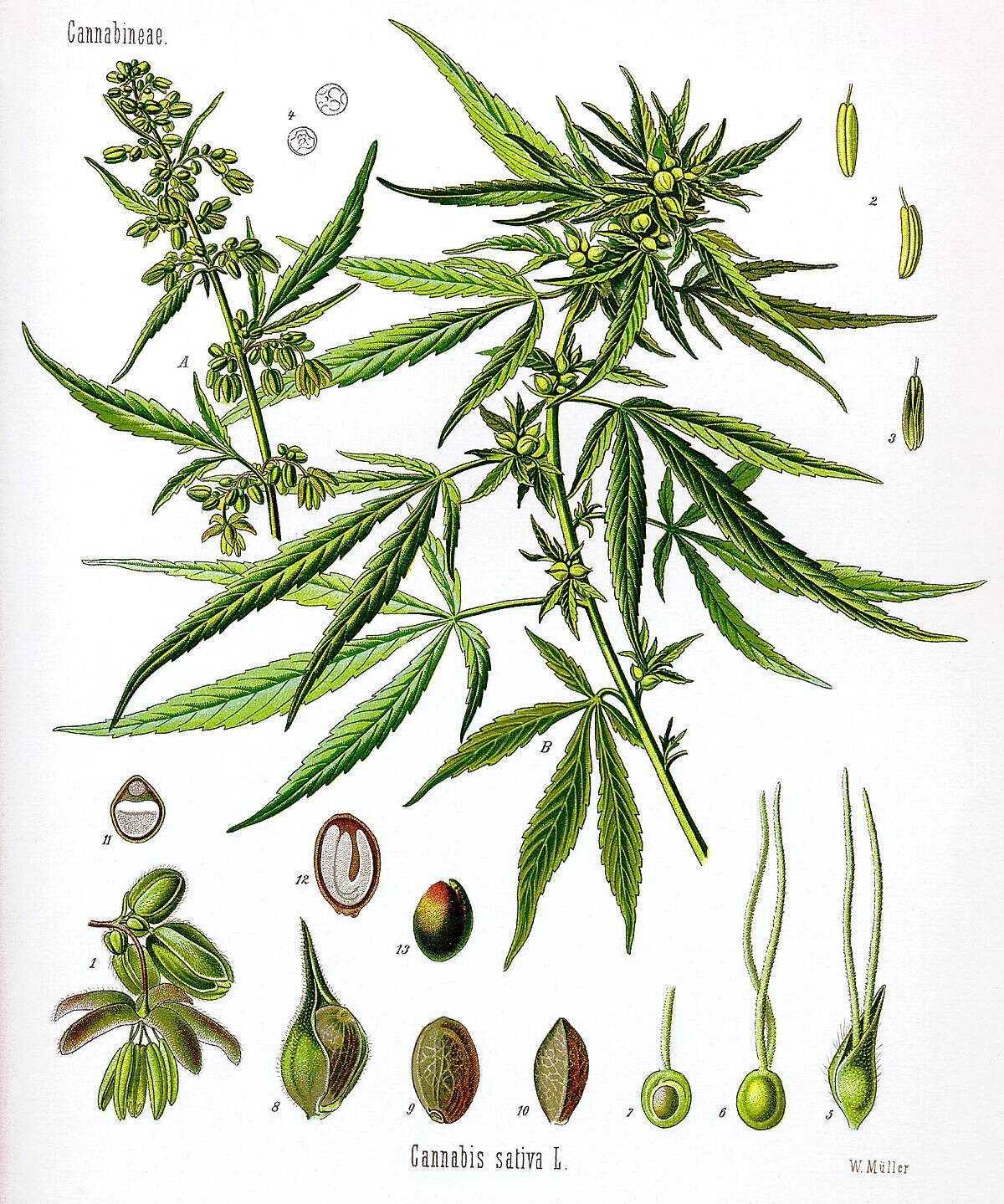Science & Technology
Cannabis Removed from Dangerous Substances: UN
- 04 Dec 2020
- 7 min read
Why in News
Recently, the United Nations (UN) Commission on Narcotic Drugs (CND), at its 63rd session, has taken a number of decisions, leading to changes in the way cannabis (Marijuana or Hemp) is internationally regulated, including its reclassification out of the most dangerous category of drugs.
Key Points
- Background:
- In January 2019, the World Health Organisation (WHO) made six recommendations related to the scheduling of cannabis in UN treaties, including the deletion of cannabis and cannabis resin from Schedule IV of the Single Convention on Narcotic Drugs, 1961.
- Schedule IV is the category of drugs that are considered to have "particularly dangerous properties" in comparison to other drugs.
- The proposals were to be placed before the CND’s session in March 2019, but members voted to postpone the vote, requesting more time.
- In January 2019, the World Health Organisation (WHO) made six recommendations related to the scheduling of cannabis in UN treaties, including the deletion of cannabis and cannabis resin from Schedule IV of the Single Convention on Narcotic Drugs, 1961.
- Global Decision:
- Older Status: The CND decision will remove cannabis from Schedule IV, where it was listed alongside deadly, addictive opioids, including heroin.
- Current Status: Now, both cannabis and cannabis resin will remain on Schedule I, which includes the least dangerous category of substances.
- Countries in Favour: 27 of the CND’s 53 Member States, including India, the USA and most European nations, voted in favour of the motion.
- Countries not in Favour: 25 countries, including China, Pakistan, and Russia, were not in favour and there was one abstention, Ukraine.
- Significance:
- Since the Convention was enforced in 1961, cannabis had been subject to the strictest control schedules, which even discouraged its use for medical purposes.
- The reclassification of cannabis, although significant, would not immediately change its status worldwide as long as individual countries continue with existing regulations.
- However, it will impact this process, as many nations follow the lead of international protocols while legislating in their respective nations.
- With this historic vote, the CND has opened the door to recognizing the medicinal and therapeutic potential of cannabis.
- India’s Stand and Regulations:
- India has voted with the majority to remove cannabis and cannabis resin from the list of most dangerous substances in the Convention.
- Under India’s Narcotic Drugs and Psychotropic Substances (NDPS) Act 1985, the production, manufacture, possession, sale, purchase, transport, and use of cannabis is a punishable offence.
- The Act was enacted in 1985 which succeeded the Dangerous Drugs Act 1930.
- The Narcotics Control Bureau (NCB) is vested with the power to charge individuals in cases related to the illegal use and supply of narcotics.
Cannabis
- According to the WHO, cannabis is a generic term used to denote the several psychoactive preparations of the plant Cannabis sativa.
- According to the WHO, cannabis is by far the most widely cultivated, trafficked and abused illicit drug in the world.
- The major psychoactive constituent in cannabis is Delta9 tetrahydrocannabinol (THC).
- The unpollinated female plants are called hashish. Cannabis oil (hashish oil) is a concentrate of cannabinoids (compounds which are structurally similar to THC) obtained by solvent extraction of the crude plant material or of the resin.
- According to the NDPS Act “cannabis plant” means any plant of the genus cannabis.
- ‘Charas’ is the separated resin extracted from the cannabis plant. The NDPS Act covers separated raisin, in whatever form, whether crude or purified, obtained from the cannabis plant and also includes concentrated preparation and resin known as hashish oil or liquid hashish.
- The Act defines ‘ganja’ as the flowering or fruiting tops of the cannabis plant but it clearly excludes the seeds and leaves.
- The Act illegalises any mixture with or without any neutral material, of any of the two forms of cannabis, charas and ganja, or any drink prepared from it.
- The legislature left seeds and leaves of the cannabis plant out of the ambit of the Act, because the serrated leaves of the plant have negligible THC content.
- ‘Bhang’, which is commonly consumed during festivals like Holi, is a paste made out of the leaves of the cannabis plant, and is hence not outlawed.
- Similarly, CBD oil, an acronym for cannabidiol derived from the leaves of the cannabis plant, would not come under the NDPS Act.
- The NDPS Act does not permit the recreational use of cannabis in India.
- While CBD oil manufactured with a licence under the Drugs and Cosmetics Act, 1940 can be legally used, it is not very common.
Commission on Narcotic Drugs
- It is the UN agency mandated to decide on the scope of control of substances by placing them in the schedules of global drug control conventions.
- It was founded in 1946 and is headquartered in Vienna.
- Global attitudes towards cannabis have changed dramatically since the commencement of the 1961 Convention, with many jurisdictions permitting cannabis use for recreation, medication or both.
- Currently, over 50 countries allow medicinal cannabis programmes, and its recreational use has been legalised in Canada, Uruguay and 15 states of the USA.




